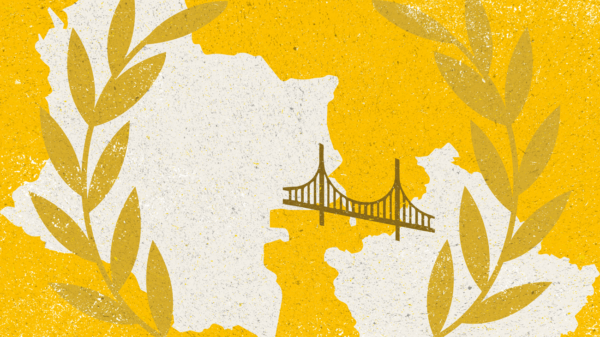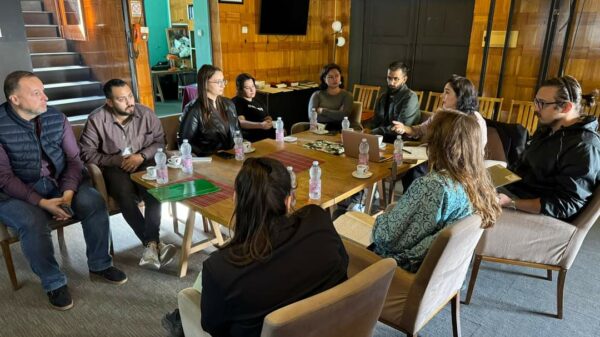The rights and protections afforded to Kosovo Serbs in areas such as healthcare, education, culture and religion are clearly outlined in the Kosovo constitution and subsequent agreements, namely the 2013 Brussels agreement, which grants further autonomous powers to Serb-majority municipalities.
However, many still see these as “special” rights or administered by “parallel institutions,” largely due to their funding ties with the Serbian government.
Contrary to such beliefs, it is important to clarify that these institutions are legally allowed to receive funding from various sources, including the Serbian government, as long as the funding process maintains transparency.
It is also a misconception that other minorities are not granted these protections. In fact, all minorities have the right to school in their own language; display their own flags and enjoy protections for their unique cultures.
While healthcare was specifically negotiated for Kosovo Serbs as part of the Brussels 2013 agreement, it is also accessible to any registered person in Kosovo.
The responsibility for safeguarding these institutions lies with the Kosovo government, ensuring not only the protection of Kosovo Serbs but also of other minority groups such as Gorani, Roma, Bosniaks and even Albanians who utilize these services.
This situation raises a broader question: Why is the right of Kosovo Serbs to manage their own education and healthcare crucial for them?
Challenges in Education
Aside from issues about history teaching, which is a challenge in both Kosovo due to a lack of multiperspective teaching and Serbia due to not acknowledging war crimes in former Yugoslavia, the the portability of qualifications poses a significant issue for the Kosovo Serb community.
Given the tendency of many Kosovo Serbs to migrate or pursue temporary opportunities in Serbia for employment and higher education, it becomes crucial for them to ensure that their qualifications are recognized and accepted in the destination country.
For instance, a Kosovo Serb student aiming to attend the University of Belgrade faces greater challenges as a graduate of the Kosovo system, as Serbia currently chooses not to recognize its diplomas.
Further, the Serbian system offers a lower-level high school degree, allowing Serbian students not bound for university to pursue vocational, technical courses, and apprenticeships. Though Kosovo offers technical schools and pathways to apprenticeships, the system remains quite weak.
Kosovo does offer its curriculum in Bosnian and Turkish minority languages - but does not offer Romani - and the largest school in Kosovo is in fact multilingual.
Though there are schools in Kosovo that host Serbian and Albanian language students, particularly in areas around Gjilan, the Kosovo government has made limited efforts to reach out to Kosovo Serbs and other minorities using the Serbian system.
However, efforts have been made to begin recognizing Serbian degrees from the University of North Mitrovica and in Serbian system high schools. Elizabeth Gowing, the advisor to Prime Minister Albin Kurti on community affairs, highlighted in her monthly newsletter that the Commission on the Verification of Diplomas would begin recognizing diplomas from the University of North Mitrovica and soon from Kosovo Serbian high schools.
However, both Kosovo and Serbian students are still awaiting recognition from institutions in each country for their degrees, as agreed upon in the 2013 Brussels Agreement.
But the biggest disparity is in the emphasis on early education which is vital for the future success of children in education. In Kosovo, only only 15% of children attend early education, meanwhile, in Serbia, the rate is 48% . Another important factor is the fact that in the Serbian system, early education is free, while in Kosovo it often isn’t.
Challenges in Healthcare
Healthcare is also linked to linguistic barriers and financial considerations. In addition, Serbian healthcare is universal while the Kosovo system requires insurance or fees to be paid upon provision.
Often, Kosovo institutions are absent in minority communities, lacking staff who can speak minority languages, particularly Serbian. Despite both Albanian and Serbian languages being the official languages of Kosovo, state institutions often fall short of complying with this legal requirement. This deficiency creates difficulties for Kosovo Serbs in accessing health or other government services.
The hospital center in North Mitrovica is also considered by many observers as one of the better hospitals in Kosovo. It also serves as a teaching hospital for the University of North Mitrovica.
Further, the healthcare system in the north of Kosovo is still better funded and supported than the Kosovo system, which not only has issues with internal reform but also with qualified doctors and nurses emigrating for higher wages and with poor facilities in its medical institutions.
For instance, sports injuries are not covered by insurance in Kosovo, another issue that simply holds back Kosovo’s population.
The differences in the two systems were most stark during the COVID-19 pandemic when Serbia, benefiting from its autocratic state structure and favorable relations with both the West and the East, administered vaccinations earlier than many European states.
This resulted in a lopsided situation where Kosovo Serbs and other minorities received their vaccinations early while many Kosovo Albanians were among the last in Europe to be vaccinated.
Universal healthcare, the system of most industrialized nations with the biggest exception being the US, would help many in Kosovo and enable earlier preventive care. Early and regular use of preventative care means less money spent later on more serious illnesses. It would allow more people to, say, take up sports freely without injury worries.
Kosovo needs to work with its minority communities and learn from them as much as it needs to protect their rights. Rather than looking at these differences as fissures, look at them as strengths. In the end, this builds the country as a whole through diversity and ensures inclusion.




























































